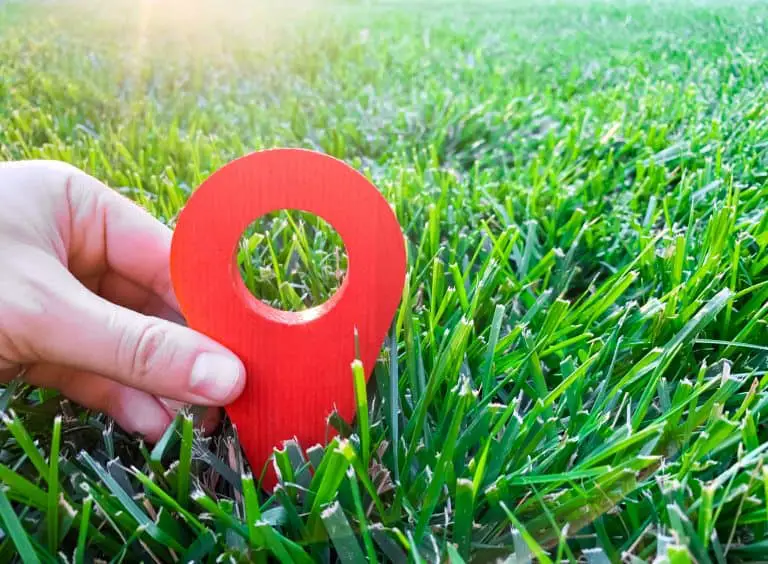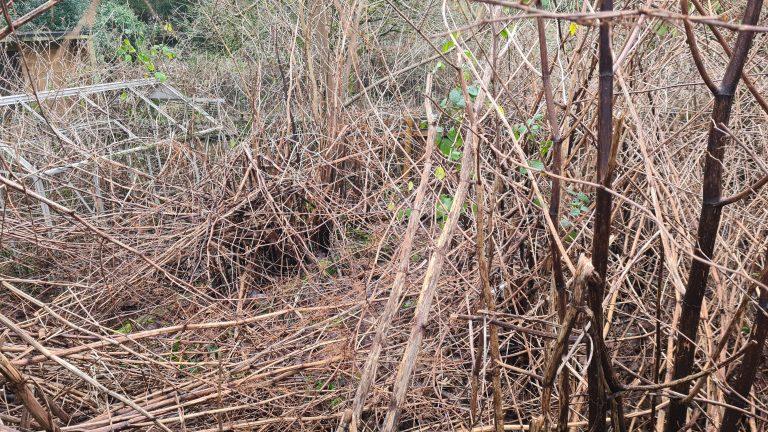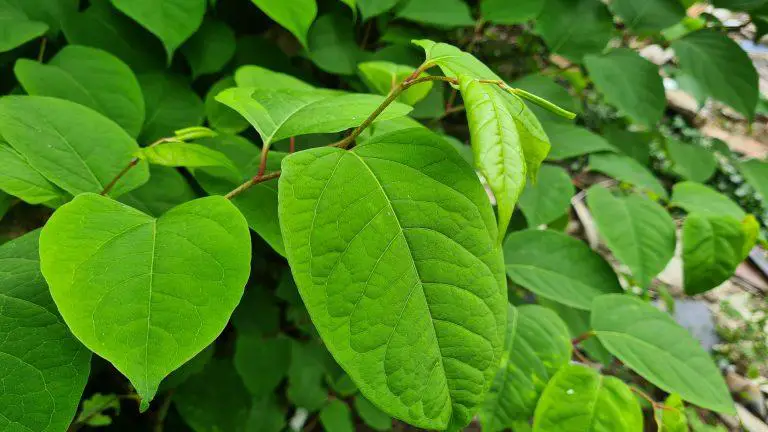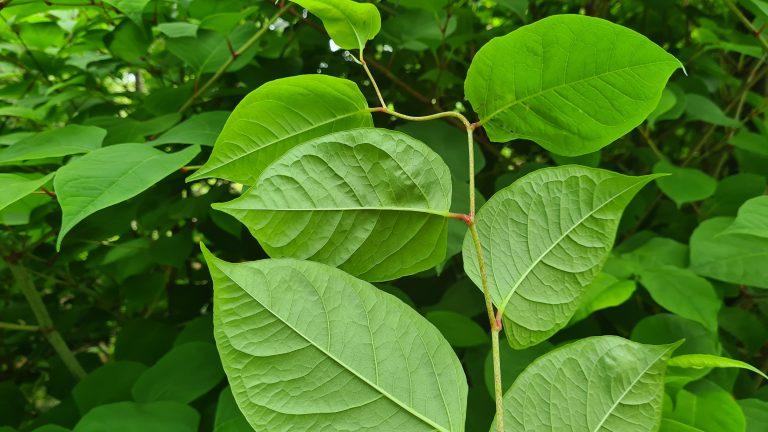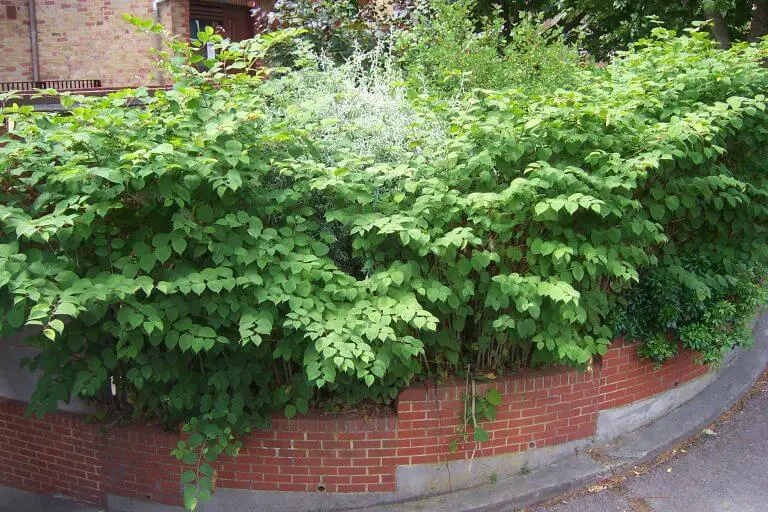To kill Japanese Knotweed permanently, herbicides such as Roundup and Gallup are best advised.
They are all glyphosate-based herbicides that will get rid of the pesky weed. Late summer or early autumn is the optimal time to treat Japanese Knotweed leaves with herbicide.
In short, Japanese knotweed cannot be killed; it can only be regulated using herbicides or excavated by a professional knotweed removal business.
In this article, we’ll discuss the best methods to get rid of this pesky weed, plus we will also dispel some of the myths surrounding its removal too.
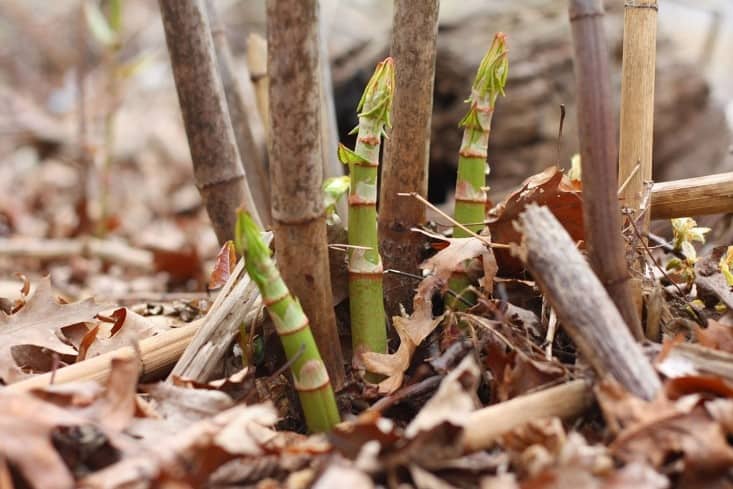
Does glyphosate kill knotweed?
Yes, herbicides including glyphosate will kill Japanese Knotweed. However, keep in mind that these herbicides are non-selective and will destroy any plant they come into touch with, whether it’s Japanese Knotweed or your prized geraniums.
Many gardeners dislike using herbicides because of this, but in the case of Japanese Knotweed, it is one of the few truly effective remedies.
Rather than being a contact herbicide, glyphosate is a translocated herbicide. While contact herbicides appear to be effective against Japanese Knotweed, they only harm the leaves and shoots of the plant. This is why glyphosate is the best option.
Glyphosate is a translocated herbicide that enters the plant’s roots and damages the rhizomes, inhibiting regeneration.
Herbicide treatments alone cannot kill Japanese knotweed, but they are effective in controlling it, according to long-term research conducted by the University of Swansea.
Glyphosate herbicide products were shown to be the best herbicides to utilise in the trial. High-grade glyphosate-based herbicides used correctly can effectively manage the plant and eventually prevent it from creating above-ground knotweed growth.
The herbicide should be applied in the summer or early autumn when the leaves are able to absorb the maximum nutrients into the rhizomes.
Glyphosate attacks rhizomes by being absorbed through the leaves and stems of an actively growing plant and then translocating, or travelling, through the plant. It must therefore be administered between spring and early autumn when the knotweed is actively growing.
The herbicide is unlikely to reach every portion of the knotweed’s rhizome system, which means certain parts will remain viable and the knotweed will not be destroyed or eradicated. It can make the rhizome inert, with no active development, and it can stay dormant and controlled indefinitely if not disturbed.
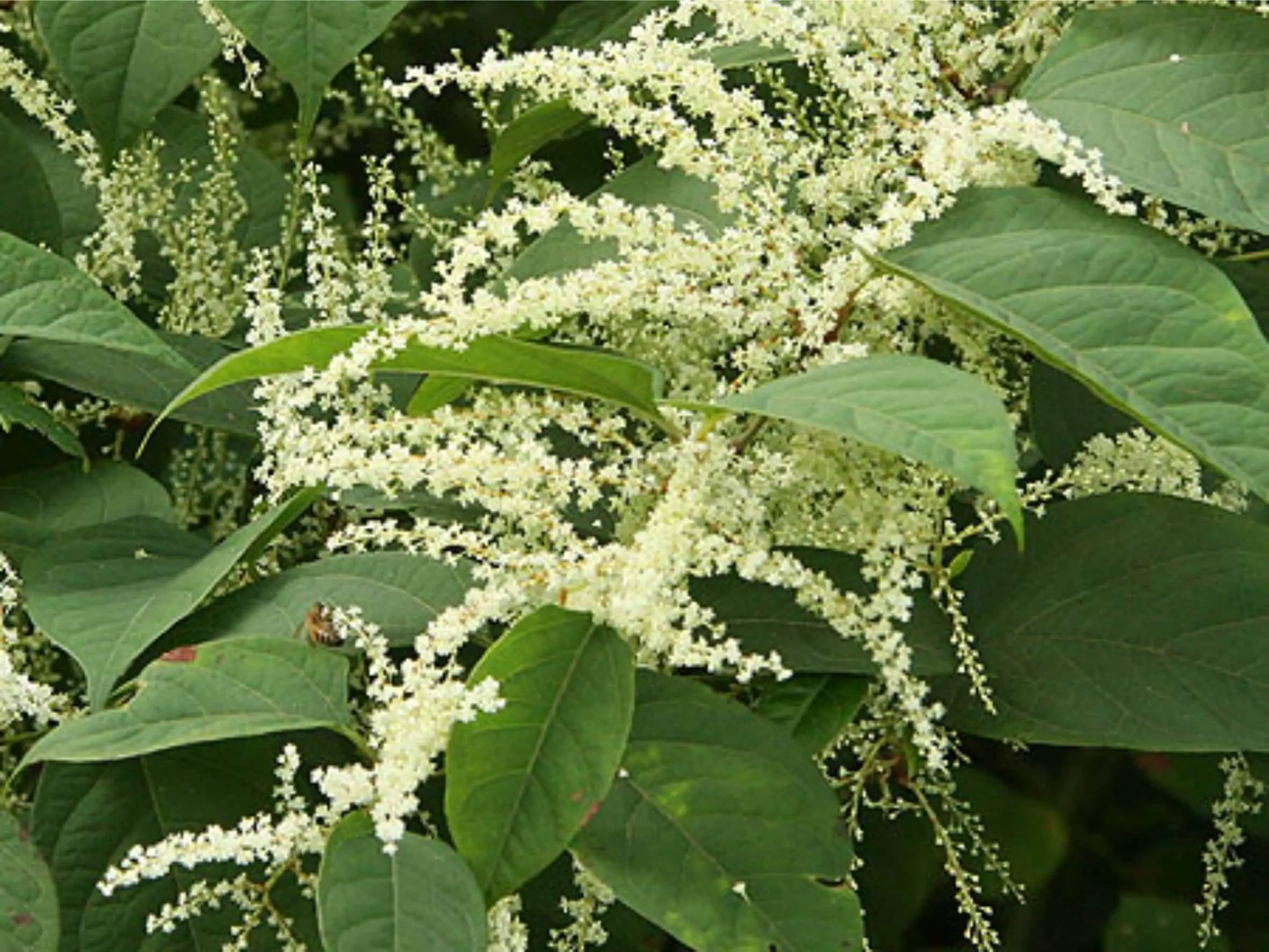
What herbicide kills Japanese knotweed?
Herbicides containing glyphosates, such as ‘Roundup Biactive’ and ‘Glyphos Bioactive,’ are effective against Japanese knotweed. Other herbicides, such as triclopyr and picloram, are also toxic to it.
However, because of its suitability for usage near water, glyphosate is frequently the favoured choice for household usage.
Herbicides are effective in destroying Japanese Knotweed, but they should only be used on areas that will eventually become lawns or flower beds. Do not use herbicides in areas that will eventually become your vegetable garden.
What chemical will kill Japanese knotweed?
Japanese Knotweed will be harmed by any glyphosate-based weed herbicides available at garden centres or for convenience via the links on this page to products bought through online marketplaces.
Glyphosate is frequently sprayed on the leaves, which the plant absorbs and transports to the rhizomes.
This is typically a lengthy process that takes at least three to four growing seasons to completely remove Japanese Knotweed. Professional Japanese Knotweed removal services have access to stronger herbicides that can cut the eradication time in half.
A Herbicide Treatment Program is frequently the most cost-effective technique for controlling Japanese knotweed (HTP).
An HTP entails a series of methodical and well-managed Japanese knotweed treatments, in which the proper application of chemicals over time exhausts the plant and prevents the spread of Japanese knotweed. The plant’s rhizomes (roots) will not be removed from the soil.
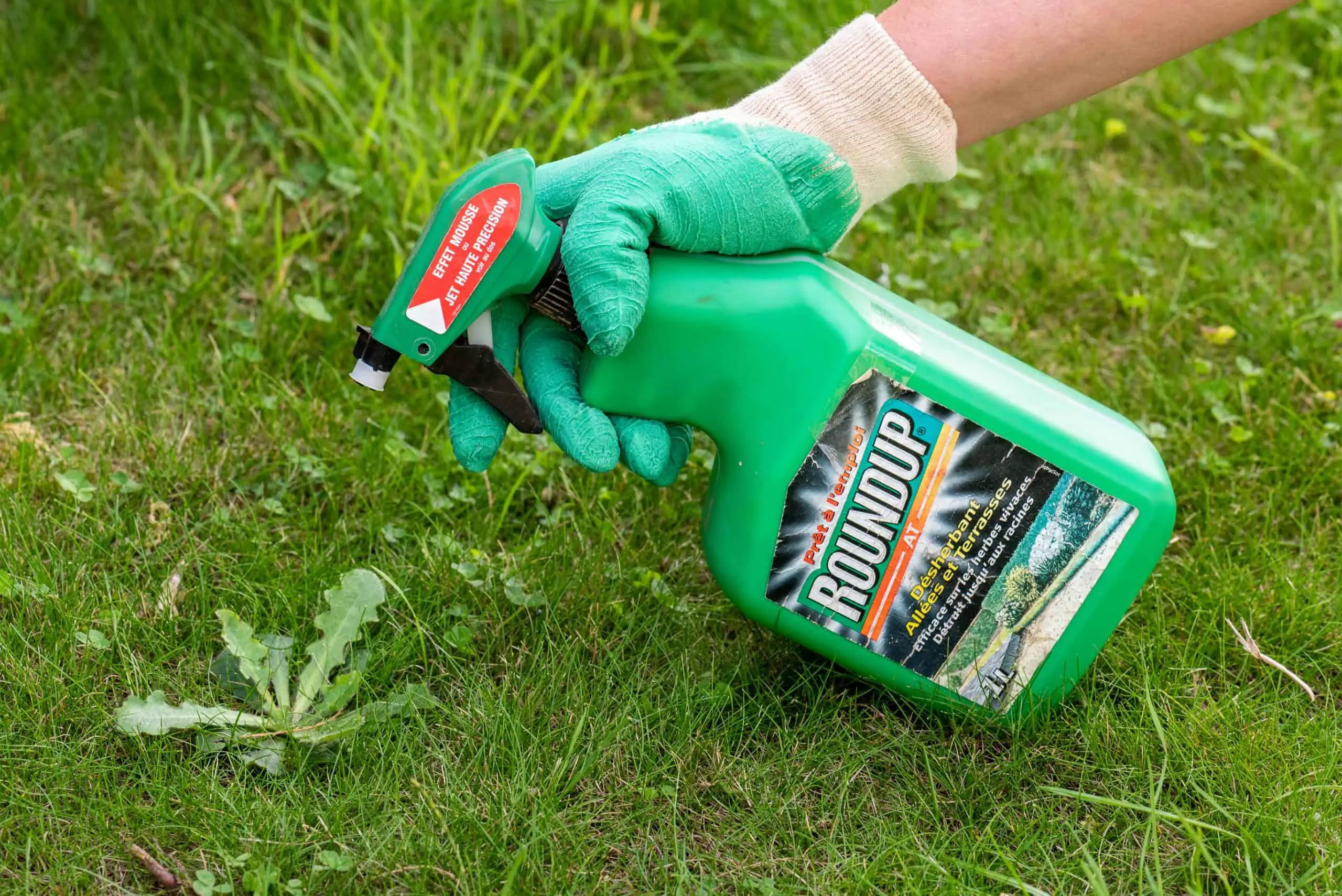
Is RoundUp one of the best herbicides to kill Japanese knotweed?
RoundUp is a trademark for a herbicide containing the active component glyphosate. Other glyphosate-based herbicides are also available. Herbicides based on glyphosate have been found to be the most efficient in combating Japanese knotweed.
However, glyphosate is used in a variety of herbicides, some of which are more effective than others.
Knotweed will not be killed by store-bought RoundUp. It may be able to control its growth after multiple treatments if used correctly.
If you’re going to use herbicide, always read the label on the bottle to see how it’s supposed to be used.
How to get rid of knotweed?
Herbicides are the most popular and cost-effective method of eradicating Japanese Knotweed.
These can be applied to the leaves, which the plant subsequently absorbs into its roots, or herbicide stem injections can be used in more environmentally sensitive places (where you don’t want to harm other plants).
In other situations, where a quicker eradication technique is required, excavation is the best solution. All traces of Japanese Knotweed are eradicated by digging up the contaminated area.
This is necessary because even the slightest rhizome piece left in the soil can regenerate. If the land in question is to be used for future development, the only possible removal approach is excavation.
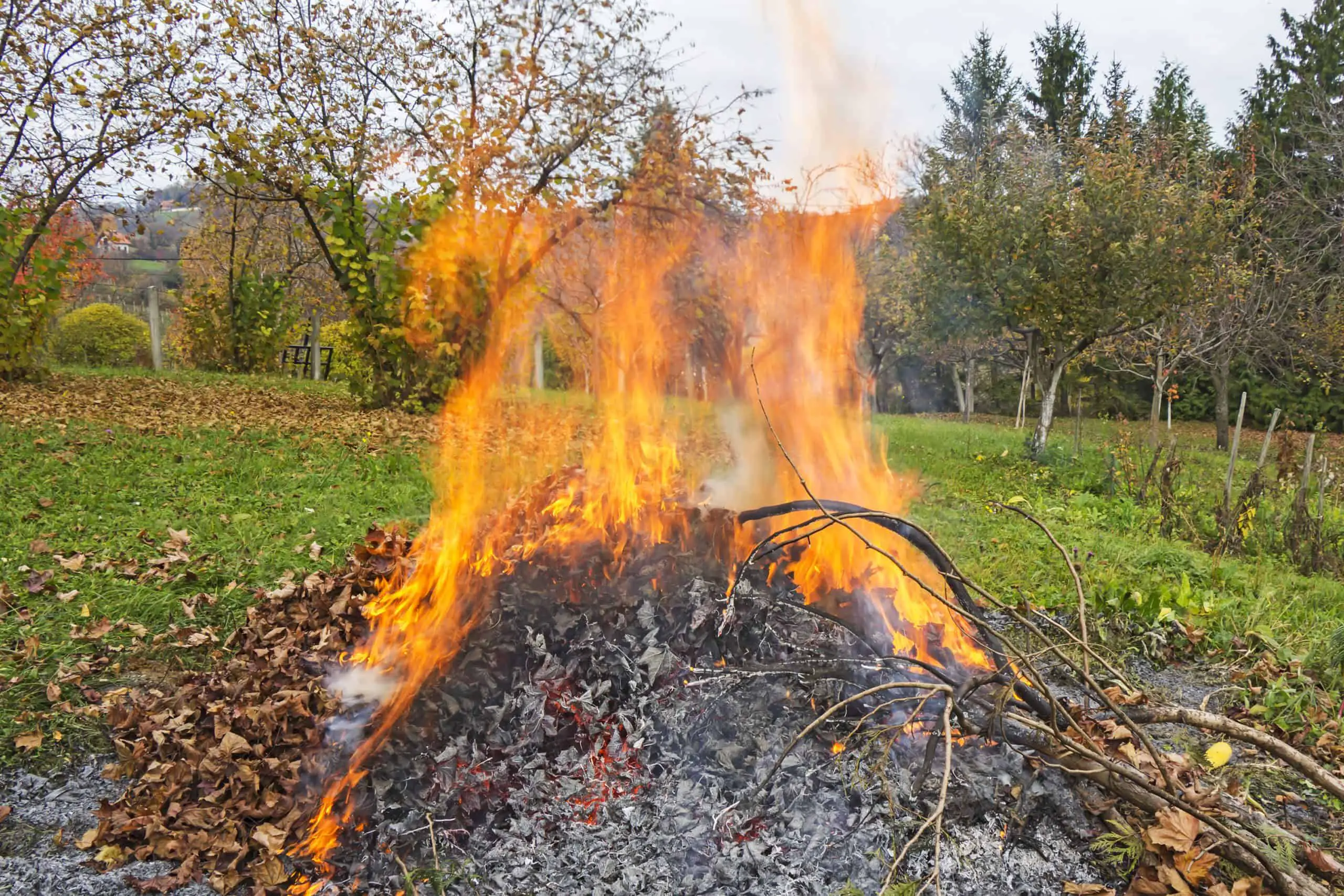
Can you burn Japanese knotweed?
After the Japanese Knotweed has been removed, it can be burned on your own land, but it must first be completely dry.
The rhizomes of Japanese Knotweed may still be active and capable of forming a whole plant when they come into contact with soil and water after being burned. As a result, you’ll need to hire a professional Japanese Knotweed removal firm even after burning.
While burning Japanese knotweed can kill the top growth, it has no effect on the rhizome. The plant may appear to be dead when the top growth dies back, but the rhizome is undamaged and will eventually develop fresh above-ground stem development.
As a result, burning knotweed will surely leave a black area of land on your property, which will revert to Japanese knotweed growth in the future.
You can burn the knotweed if you only wish to cut and remove the top stem growth, as long as you follow local council ordinances and keep all materials and ash on-site; however, we recommend hiring a professional service, such as ours, to fully remove and dispose of this incredibly invasive plant.
What are the alternatives to removing Japanese knotweed?
Creating a root barrier to stop the spread of Japanese Knotweed is another viable option. This impassable barrier extends three metres underground after digging (Japanese Knotweed roots extend just over two metres) and thereby prevents the plant from spreading into neighbouring lands.
The root system (rhizome) of Japanese Knotweed cannot grow through the root barrier, hence the infestation is totally confined.
Another effective, but the costly method is excavation. Because even as little as 0.7g of rhizome might result in knotweed regrowth, our professionals assure total Japanese knotweed removal.
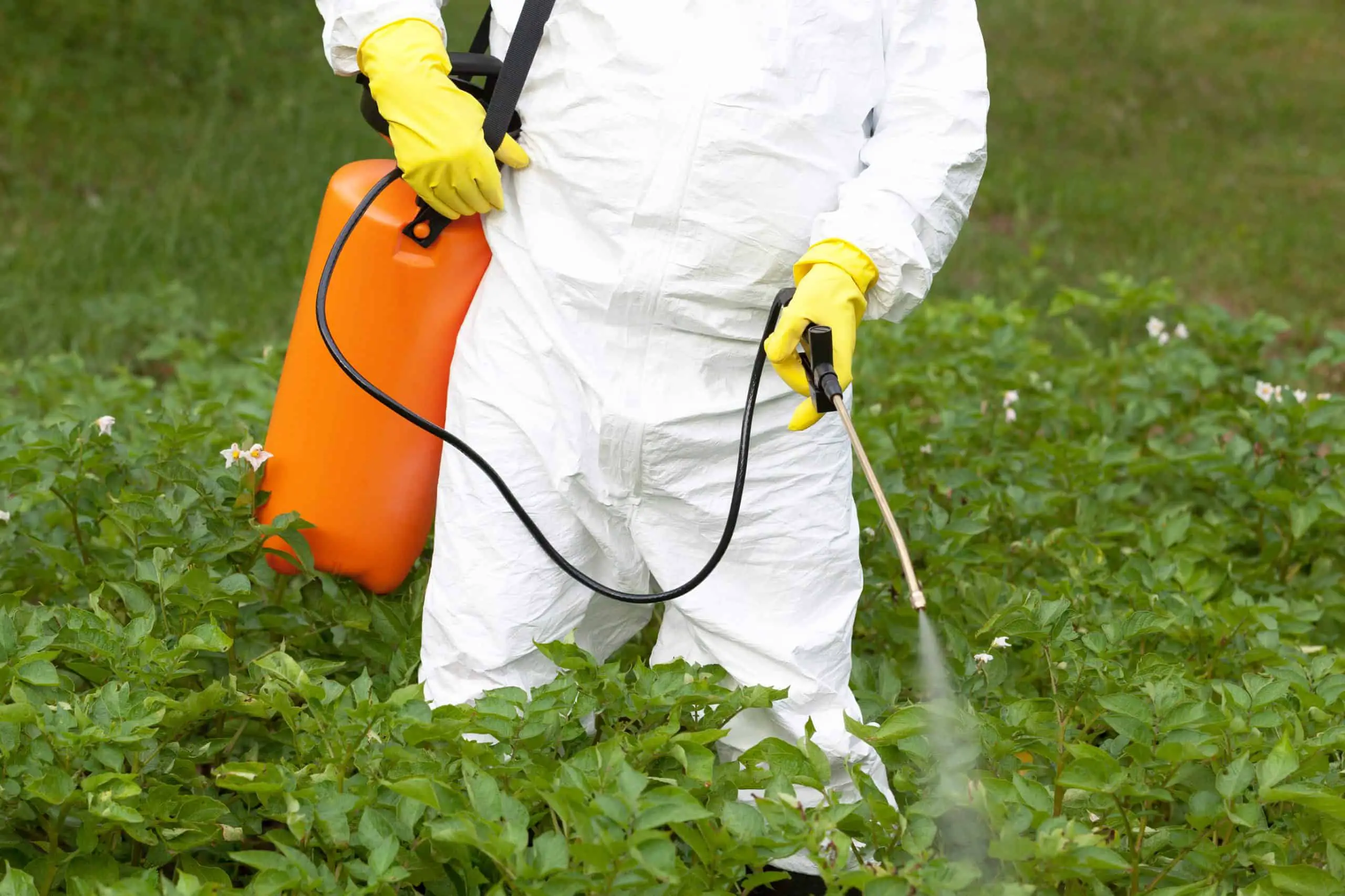
Does Diesel kill Japanese knotweed?
Diesel does not kill Japanese knotweed, contrary to popular belief. While it may appear to be causing harm by distorting top growth, the rhizomes in the soil are unaffected. This means that fresh top growth will arise and expand exactly as prominently as before after a period of time.
The subsurface rhizome system will recover even if the stems are severed and diesel is poured into the top.
Furthermore, the surrounding soils will be damaged, with the potential of diesel seeping into the groundwater, which is hazardous to humans and animals. Most significantly, using diesel for anything other than its intended use is unethical and, in many cases, illegal.
Will bleach kill Japanese knotweed?
Bleach is another inefficient chemical that generates a slew of other issues. Despite its corrosive ingredients, bleach is a valuable home solution for cleaning and disinfecting, but it is not intended to be used as a weed killer.
The top growth will be harmed by cutting stems and pouring bleach down them, but the rhizomes will remain unaffected. Bleach is particularly hazardous to aquatic life if it seeps into a pond or watercourse, and if it seeps into soils, it can injure nearby plants, inflicting more harm than good.
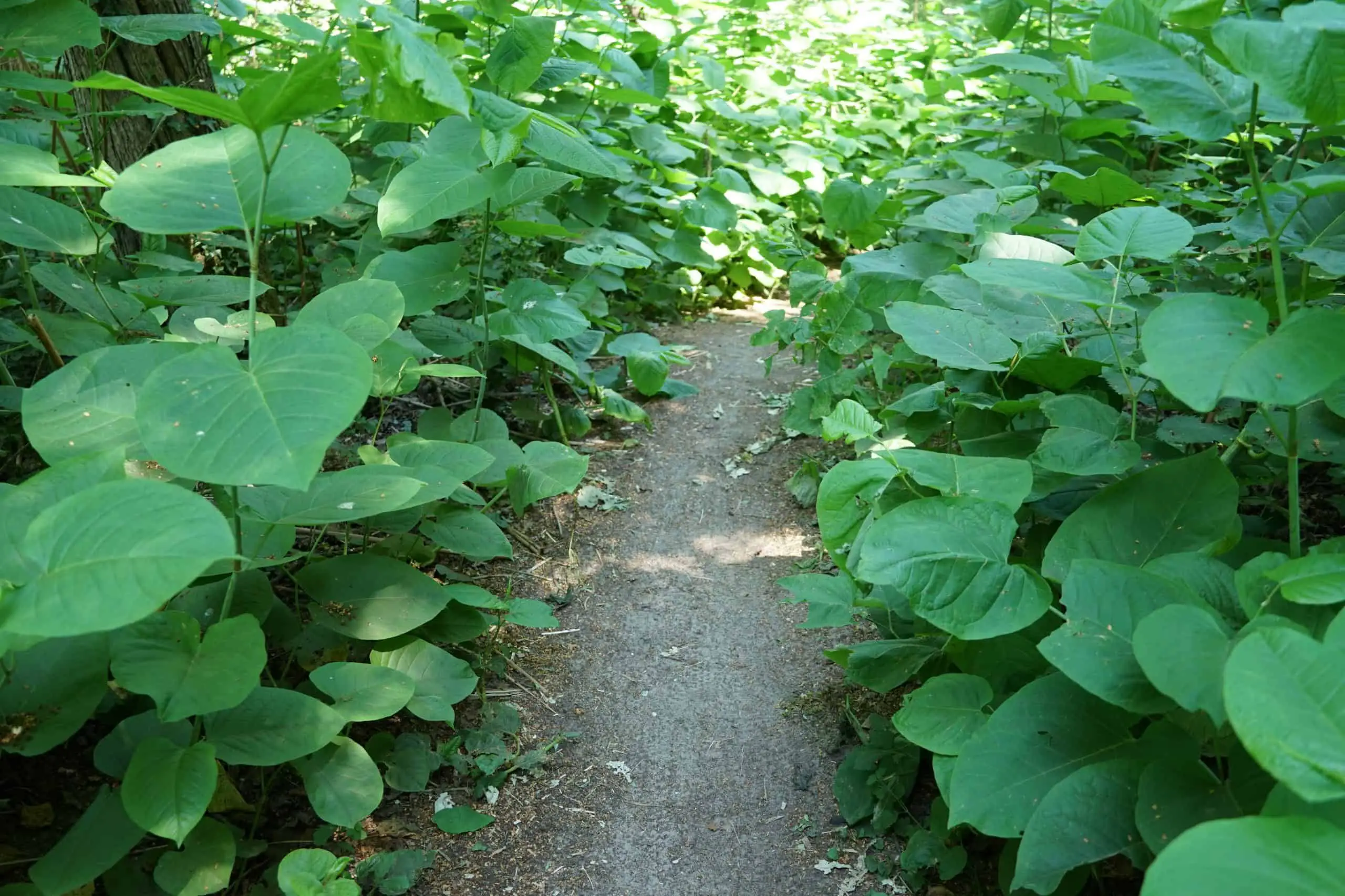
Will vinegar kill Japanese knotweed?
Both vinegar and salt have been used as natural methods to remove Japanese knotweed, but neither will help you get rid of this weed. Both prove ineffective as they are nowhere near as strong as a herbicide.
Will Lime kill Japanese knotweed?
Lime, commonly known as calcium carbonate, has been suggested as a natural cure for killing knotweed (CaCO3). Because lime is such an alkaline material, it can be used to neutralise acidic soils. Because of its alkalinity, lime is toxic to humans and animals when it comes into contact with their skin or is inhaled.
Japanese knotweed is tolerant of a wide range of soil types and can be found growing in acidic, neutral, and alkaline soils. As a result, increasing the alkalinity of soils with lime will not prevent Japanese knotweed from growing.
Due to its high alkaline composition, large amounts of lime applied to the base of knotweed may cause it to burn. However, as with bleach, this may only harm the above-ground stems, with the rhizome swiftly producing new top growth.
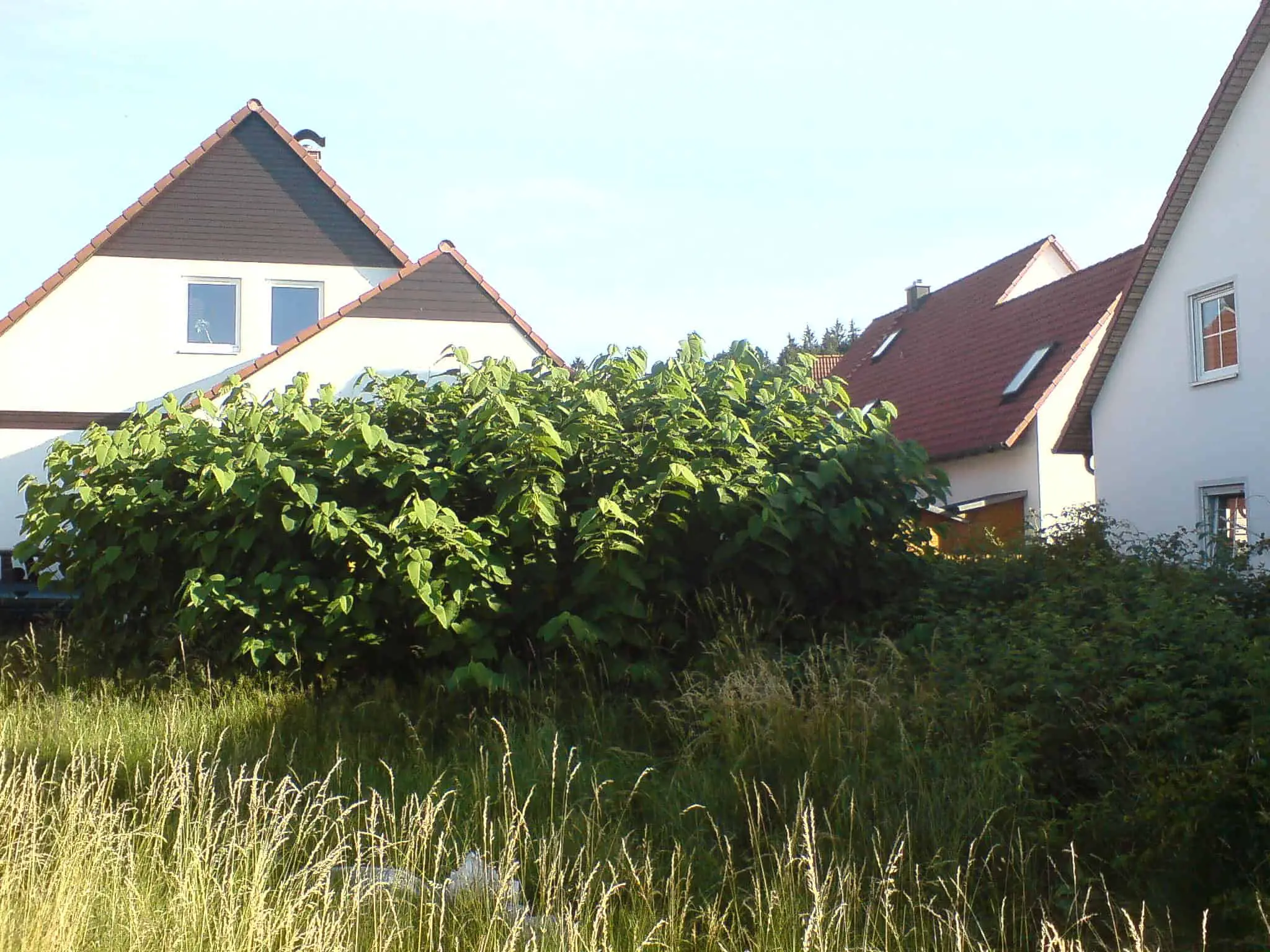
Will pulling out knotweed stems kill it?
Pulling Japanese knotweed out of the ground is merely a short-term fix. The rhizomes grow very deep, and this activity is unlikely to eliminate them. New growth will emerge from the rhizome.
As a result, you would not be removing the source of the problem, and you would also be creating knotweed trash (pulled stems), which would be disposed of in accordance with the Environmental Protection (Duty of Care) Regulations 1991.
If you elect to remove the knotweed stems, we recommend storing any material in a Knotweed Removal Bag for disposal. Knotweed can spread further if it is not properly disposed of in your garden and elsewhere.
If you leave any evidence of knotweed waste on your compost heap, it will sprout and spread.
The Knotweed Removal Bag is made to assist individuals or businesses in lawfully disposing of Japanese knotweed material as “controlled waste” at a permitted disposal site.
Once knotweed waste has left your site or property, it is classified as regulated waste and must be transported by a company that holds an Environment Agency-issued Waste Carriers Licence (E.A.).
The controlled waste must be transported to a landfill site that has been approved by the Environmental Agency to accept and dispose of Japanese knotweed.
Will mowing or strimming kill Japanese knotweed?
When you mow, strim, or flail Japanese knotweed, you’re increasing the chance of it spreading over your property and into neighbouring land.
It’s illegal to plant, scatter or enable dispersal of Japanese knotweed and other non-native invasive plant species designated under the Wildlife and Countryside Act 1980, as well as to induce the spread of Japanese knotweed and other non-native invasive plant species.
Furthermore, knotweed debris cannot be disposed of in a recycling centre or in a garden waste receptacle. You might face a fine of up to £2000 or a sentence of up to two years in prison if you break the law.
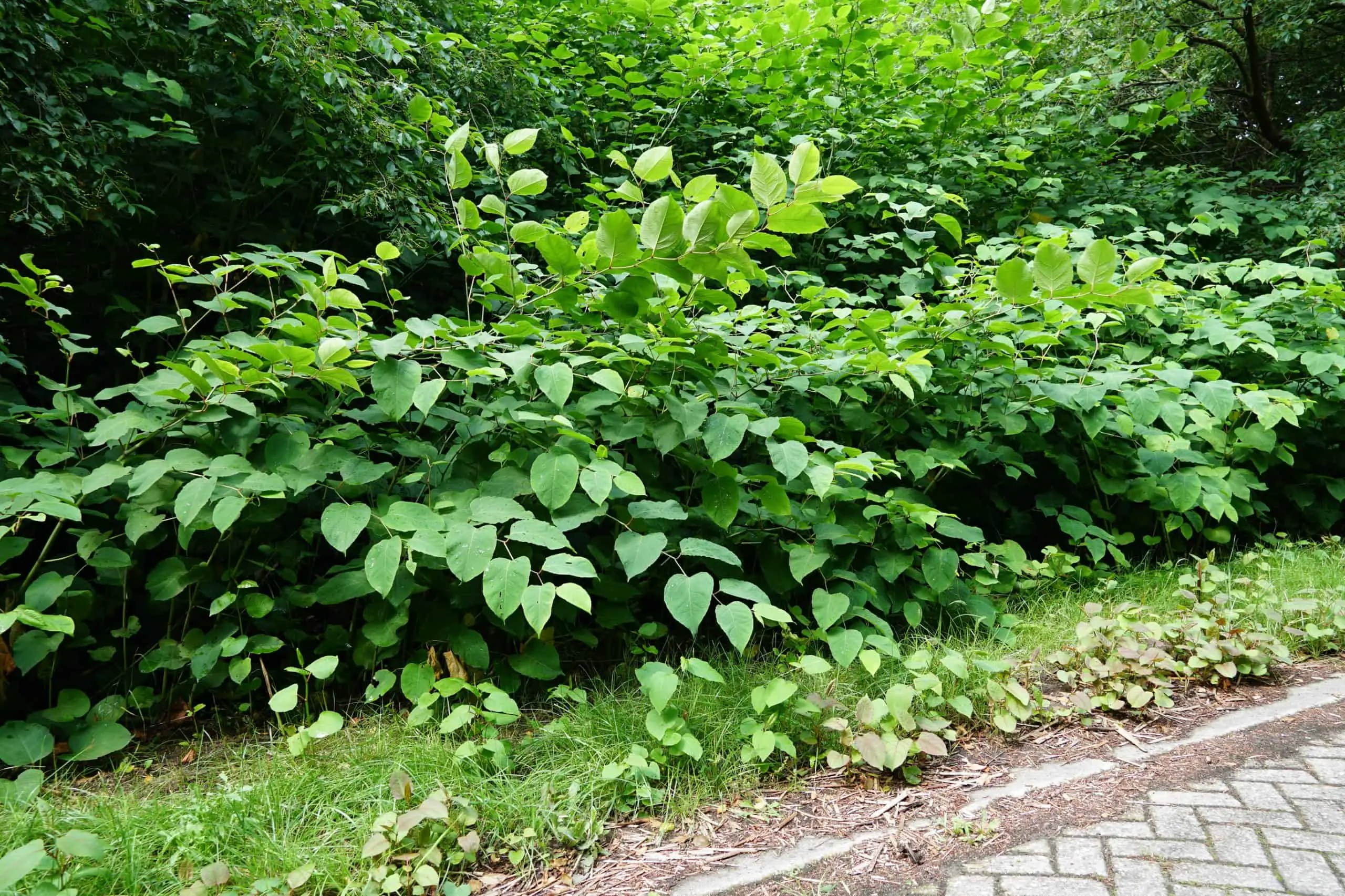
Should I avoid alternative natural weed killers?
Because knotweed is so pervasive and difficult to eradicate, natural weed killers such as vinegar or lime are not suggested.
Many people prefer to avoid using harsh weed killers in favour of safer, healthier alternatives. Glyphosate, on the other hand, is a relatively safe chemical to use in your garden without harming people or animals.
It also gives the necessary amount of strength to combat this invading weed. DIY solutions are ineffective, and a more powerful means of eradicating this dreadful scourge is required.
Instead, use industrial-strength herbicides to eliminate this overactive weed killer more quickly and effectively.
Should I use a professional Japanese knotweed removal specialist?
The removal of Japanese Knotweed is a challenging task that can take a long time. We usually recommend a period of two years or four full growing seasons.
Some people attempt to uproot this troublesome plant on their own, but even a 0.2 g chunk of Japanese Knotweed rhizome can sprout, putting you right back where you started.
Contacting a professional Japanese Knotweed removal firm is the best method to ensure a comprehensive, thorough, and long-lasting eradication.
However, if cost is prohibitive then using a recommended herbicide such as RoundUp will solve the problem if you use it repeatedly to kill the above-ground issue.
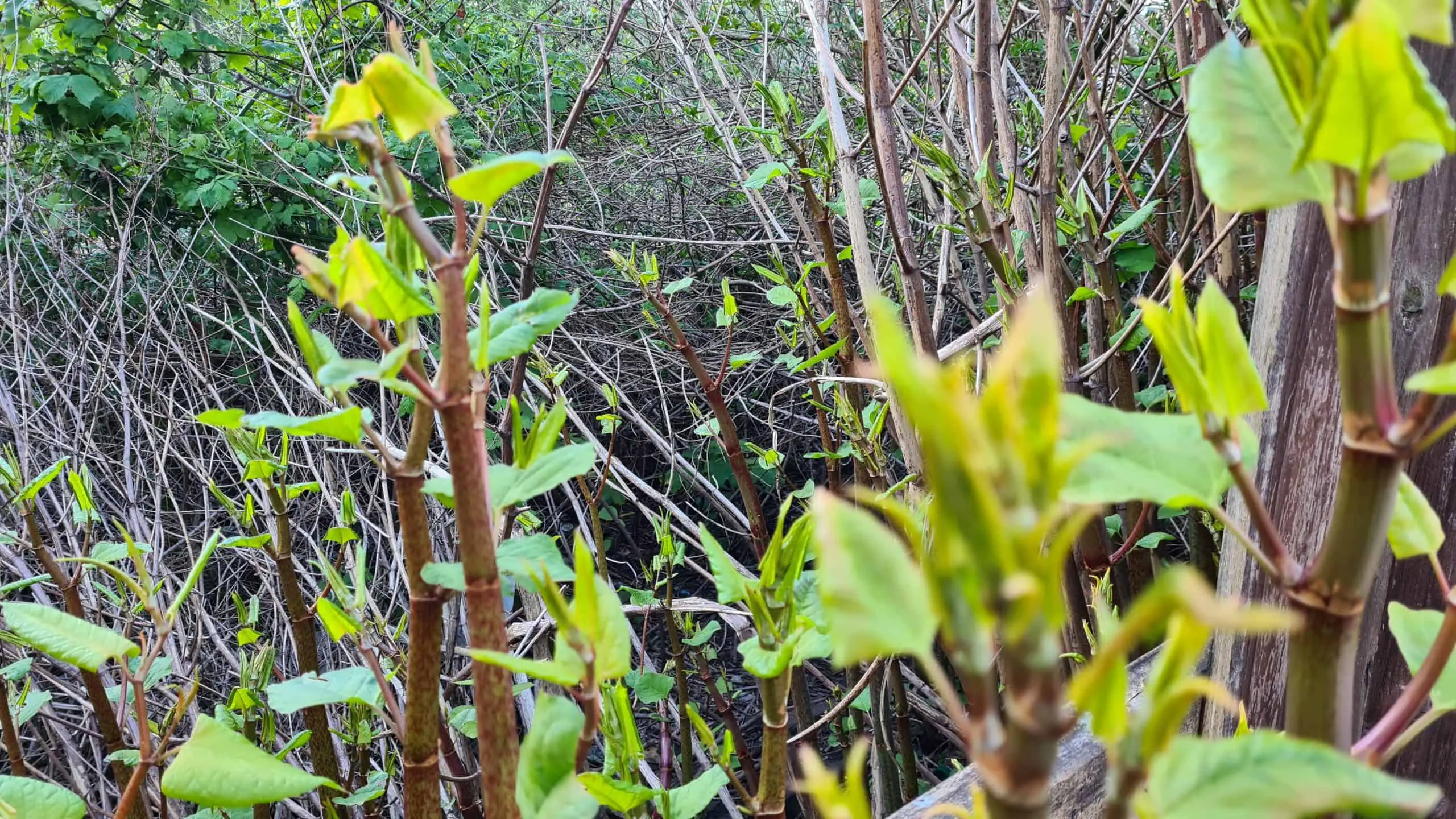
Want to know more about how to kill Japanese Knotweed?
Knotweed Removal aims to provide the most up-to-date information, help and advice for YOU to make informed decisions. If you are unsure or uncertain about how to proceed, please reach out to us and we will gladly come back and advise you as best we can.
Governmental advice can be found here and the UK law covering the removal of Japanese Knotweed as stated under the Wildlife and Countryside Act 1981 can be found here.
The best means to contact us is via our email – hello@knotweedremoval.tips
Do not forget we have a library of blogs covering many areas relevant to Japanese Knotweed, our free downloadable How-to Guides and Product Reviews on the latest methods being employed to eradicate or remove Japanese Knotweed.
Knotweed Removal, UK

